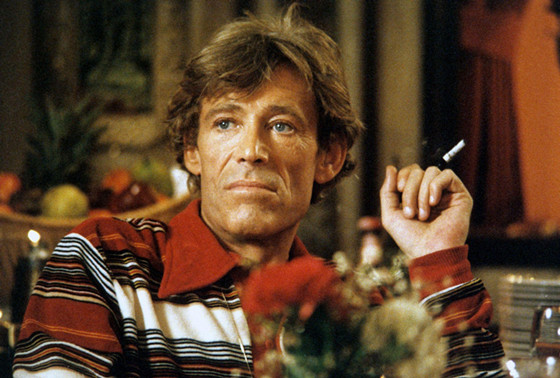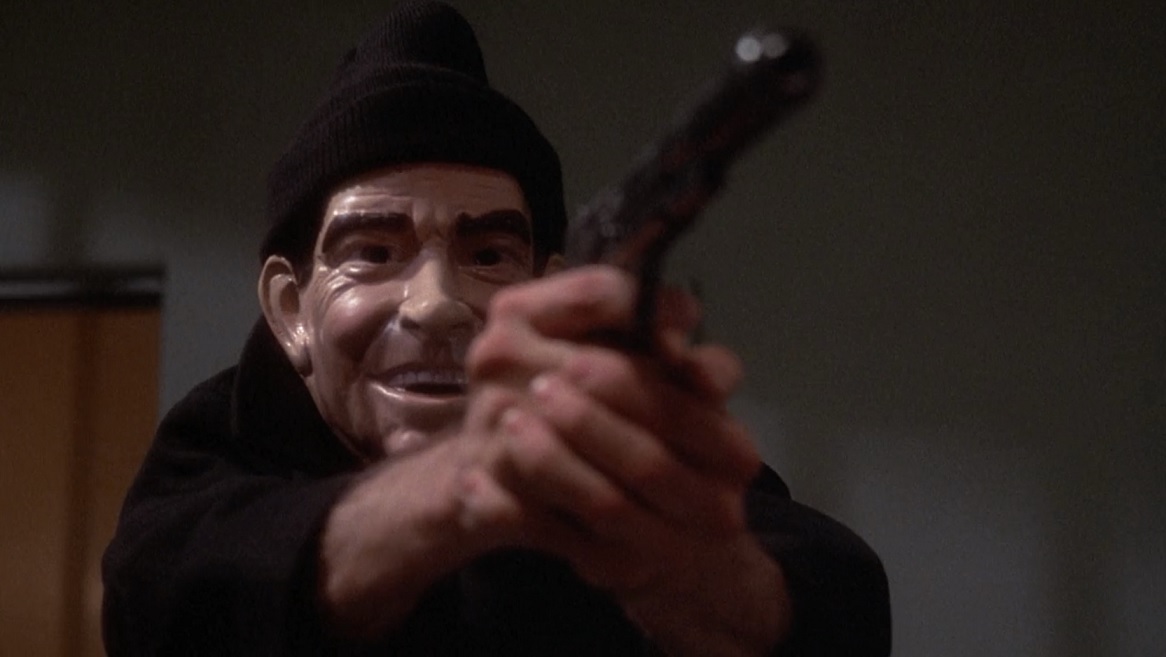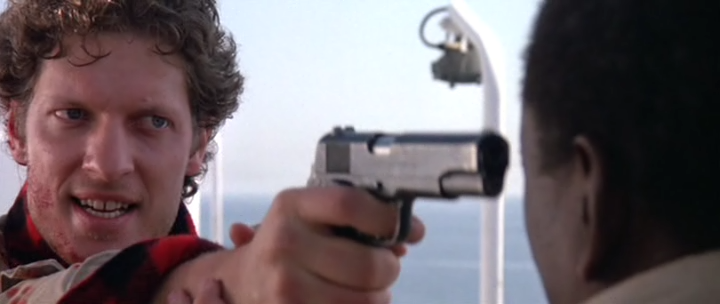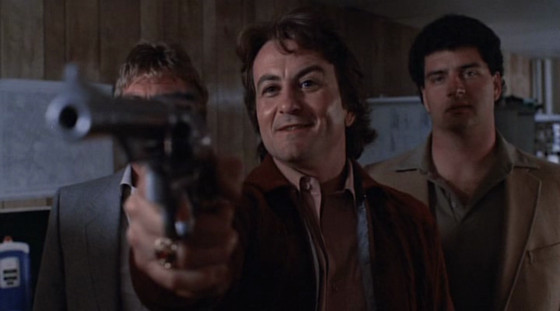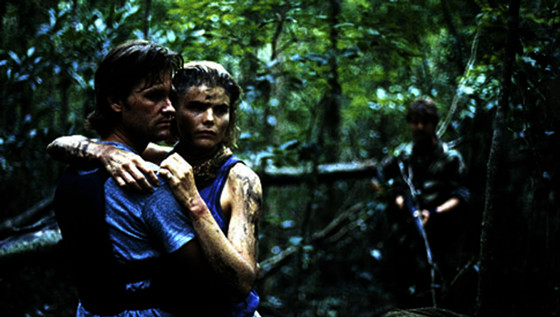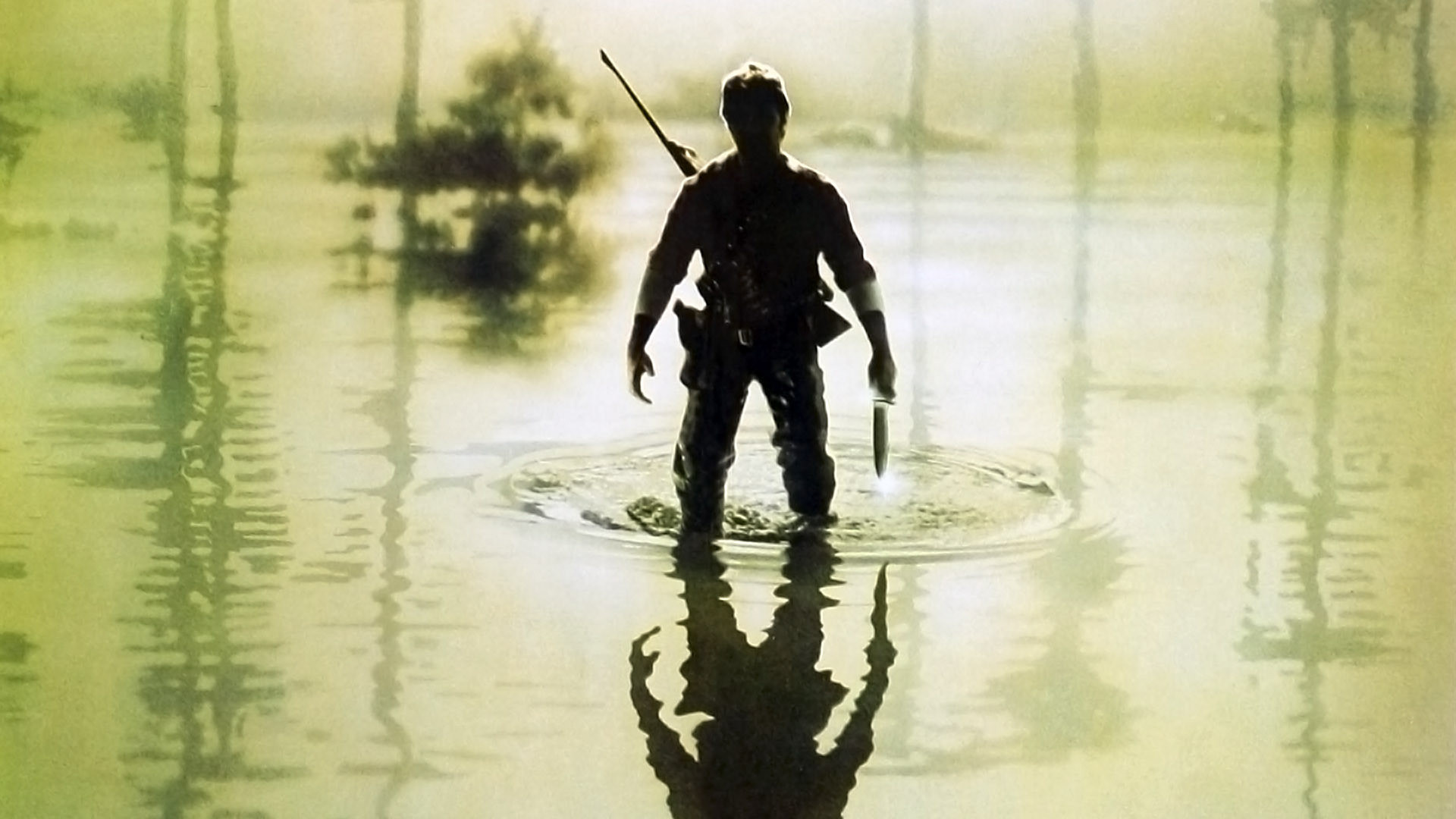As the 1970s drew to a close, Hollywood was changing yet again. When such simple, high concept films as Jaws, Star Wars and Alien began raking-in astronomical amounts of money at the box-office, the blockbuster mentality took over (and still rules today). With some notable exceptions, genres such as westerns, musicals and historical epics gave way to more simple pleasures as space operas, slasher films, lowbrow comedies and big loud action.
But traditional thrillers managed to survive the sea change, mostly by eschewing many of the elements which made 70s classics like The French Connection and All the President’s Men so cutting-edge just a few short years earlier. Our overall distrust in authority, instigated by Watergate and the Vietnam War, was becoming a distant memory. Thrillers with heavy messages and bleak, nihilistic resolutions were out-of-vogue in the more optimistic 80s (a decidedly happier decade). It became more important for our hero to manage a victorious f**k you at the end.
It goes without saying thrillers grew bigger, more violent and increasingly FX driven, which isn’t necessarily a bad thing. After all, the world would be a far sadder place without such classics as Raiders of the Lost Ark, Escape from New York and Fatal Attraction.
But for every box-office blockbuster, there are scores of worthy thrillers from the 80s that have largely been forgotten. Some of the more character-driven films got lost in a sea of those offering more spectacle, while others made the mistake of being too smart for their own good. Still more were just as high-concept and action packed as the biggest films of the era, yet for some reason, never became enduring classics.
The following is a list of 10 less-heralded thrillers from the 1980s, running the gamut from sleeper hits to overlooked gems to blockbuster wannabes. The one thing they all have in common is they’ve largely been forgotten over time, but are well worth rediscovering.
10. Best Seller (1987)
Brian Dennehy plays Dennis Meechum, a veteran cop and best-selling author with a severe case of writer’s block (ever since his wife’s death). He’s heavily in debt, owing his publisher a new book while trying to raise a teenage daughter on his own.
Then Cleve (James Woods) shows up out of the blue, a cocky professional assassin who insinuates himself on Meechum’s life with a proposition: To collaborate on a book that will not only chronicle Cleve’s career as a killer, but bring down vicious corporate hotshot David Madlock (Paul Shenar). Cleve did much of Madlock’s dirty work in the past before getting screwed over. Now he wants payback.
Meechum is torn between arresting Cleve for all the murders he’s freely admitting to and the fact this book could indeed be his next best-seller. Meanwhile, Madlock and his thugs are doing whatever they can to make sure the book never sees the light of day.
It’s a great concept for a character-driven thriller, which Best Seller exploits pretty well. The morally ambiguous Cleve is a terrific foil, played with the usual manic gusto by Woods. He’s brash, smooth, arrogant, even likable & vulnerable at times. The adversarial conversations between he and Meechum are often fascinating. While the final act dissolves into a conventional action movie, this is worth revisiting for fans of its charismatic lead actors, both at the top of their game.
9. Shoot to Kill (1988)
As an actor, the great Sydney Poitier more-or-less disappeared throughout most of the 80s. Following 1977’s A Piece of the Action, which he also directed, Poitier seemed content to remain behind the camera, cranking out numerous high-concept comedies (though Stir Crazy was really his only good one).
Shoot to Kill marked Poitier’s return to the big screen after an 11 year absence, perhaps the biggest reason this film garnered so much attention at the time of its release. On paper, Shoot to Kill reads like your standard generic thriller.
Poitier plays an FBI agent teaming up with mountain man Tom Berenger to track down a murderous jewel thief trying to reach the Canadian border with hostages in tow. But it’s the performances which make elevate this film above the fray. Poitier and Berenger play off each other so well that you tend to forget this is yet-another variation of the buddy-cop scenario made popular by 48HRS.
Roger Spottiswoode, a hit-or-miss director throughout most of his career, brings his A-game to the proceedings, allowing a formidable cast (including Clancy Brown, Kirstie Alley and Andrew Robinson) to shine amongst suspenseful, well-executed action sequences.
But despite being a considerable critical and box office hit, Shoot to Kill is largely forgotten today by all but those who first enjoyed it in theaters. A bare-bones DVD exists, but there’s been no Blu-Ray release, nor is it ever broadcast on television or widely available on most streaming services. One would think, considering how seldom Poitier chooses to appear in films these days (his last notable acting role was in 1997’s The Jackal), audiences would be more aware of this undervalued thriller.
8. Black Moon Rising (1986)
A big part of Tommy Lee Jones’ appeal has always been an apparent willingness to give anything a try, from acclaimed TV miniseries to blockbusters to art-house projects and everything in-between.
After all, this is the guy who followed-up his Oscar-nominated performance in JFK by playing the bad guy in Under Siege, a Die Hard rip-off and the only good movie ever to star Steven Seagall (most because of Jones). Whether he’s the star or a supporting character, Jones nearly always brings his A-game, even to the B-movies he sometimes did in the 1980s, such as Black Moon Rising.
Jones plays Quint, a former CIA agent hired by the government to retrieve a cassette containing top-secret information. Pursued by criminals who also want the tape, he stashes it inside a prototype car, the Black Moon, which is then stolen by a crew of thieves led by Nina (Linda Hamilton), who works for a nefarious car theft ring led by Ryland (Robert Vaughn, bringing his trademark iciness to the role).
Despite its budget-conscious production values, Black Moon Rising (from a script co-written by John Carpenter) tells a tight, suspenseful story and manages some pretty impressive vehicular action (including a climactic skyscraper-jump which may have arguably inspired a similar scene in Furious 7).
Jones is great in the lead role…tough, droll, witty and vulnerable, a persona which would eventually make him a cinema icon. His character probably deserves additional kudos for enduring what might be the worst onscreen ass-kicking where the hero doesn’t actually die.
7. The Mean Season (1985)
In addition to iconic roles in Escape from New York and The Thing, Kurt Russell starred in a lot of conventional thrillers during the 80s, one of which was 1985’s The Mean Season. This is the kind of film that, if made in the 70s, would likely have starred someone like Gene Hackman.
Russell plays Malcolm Anderson, a weary Miami newspaper reporter on the verge of burning out due to all the terrible crimes he’s covered. He wants nothing more than to get away from Miami with his longtime girlfriend (Mariel Hemingway), but gets drawn into the biggest story of his life when a serial killer singles him out as the one man to write about his exploits for the public. Though the killer craves media attention, it’s Malcolm who becomes a minor celebrity, torn between helping the police catch the killer and enjoying the sudden attention he’s getting.
For the most part, The Mean Season is content to be a fairly predictable by-the-numbers thriller, with Anderson rendered a hapless pawn who mostly exists to react to every plot turn (though Russell is solid as usual). Still, the overall story is interesting enough to keep our attention, perhaps laying some groundwork for later, more visceral thrillers like Seven and The Silence of the Lambs.
The impressive cast also includes early turns by Andy Garcia and Joe Pantoliano, as well as the criminally-underrated Richard Jordan as the killer, given a rare chance to pull out all the stops to create a suitably unhinged character.
6. Southern Comfort (1981)
A squad of weekend National Guardsmen decide to mess with the wrong batch of backwoods Cajuns in Southern Comfort, one of director Walter Hill’s more unappreciated films. When these locals retaliate, killing the squad commander, the remaining solders find themselves being hunted while battling swamp elements (and each other) in a desperate attempt to survive.
Southern Comfort takes the timeless And Then There Were None recipe and throws in a few heaping helpings of Deliverance. Add to the mix a cast of eclectic characters (lead by Robert Carradine and Powers Boothe) who don’t really know or like each other, and you’ve got a suspenseful, somewhat incendiary film which makes outstanding use of its haunting Louisiana wilderness locations.
The film comes to a fairly anti-climactic conclusion (almost like Hill didn’t quite know how to end it), but until then, Southern Comfort boasts solid performances, a smart story, well-timed moments of shocking violence and a few hateful characters who deserve what’s coming to them.
